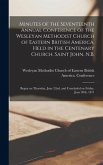In the Methodist lexicon, 'conference' refers to a body of preachers (and later, of laity as well) that exercises legislative, judicial and (to some extent) executive functions for the church or some portion thereof. But 'conference, ' Richey argues here, defined the Methodist movement in more than political ways: On conference hinged religious time, religious space, religious belonging, religious structure, even religiosity itself. Methodist histories uniformly recognize, typically even feature, conference's centrality, but describe that in primarily constitutional and political terms. The purpose of this volume is to present conference as a distinctively American Methodist manner of being the church, a multifaceted mode of spirituality, unity, mission, governance, and fraternity that American Methodists have lived and operated better than they have interpreted.
Hinweis: Dieser Artikel kann nur an eine deutsche Lieferadresse ausgeliefert werden.
Hinweis: Dieser Artikel kann nur an eine deutsche Lieferadresse ausgeliefert werden.

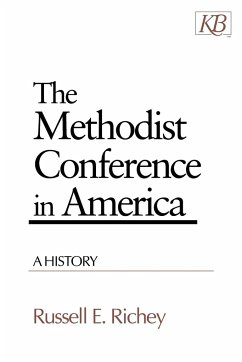
![Journal of the Western N.C. Annual Conference of the Methodist Episcopal Church, South [serial]; 48th 49th(1937-1938) Journal of the Western N.C. Annual Conference of the Methodist Episcopal Church, South [serial]; 48th 49th(1937-1938)](https://bilder.buecher.de/produkte/65/65511/65511007m.jpg)
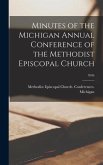
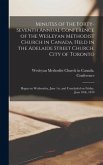
![Minutes of the Proceedings of the Seventh Session of the British Columbia Annual Conference of the Methodist Church [microform]: Held in the Central M Minutes of the Proceedings of the Seventh Session of the British Columbia Annual Conference of the Methodist Church [microform]: Held in the Central M](https://bilder.buecher.de/produkte/66/66198/66198543m.jpg)
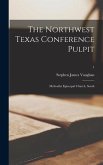
![Minutes of the Proceedings of the Third Session of the Hamilton Annual Conference of the Methodist Church [microform]: Held in the Wellington Street M Minutes of the Proceedings of the Third Session of the Hamilton Annual Conference of the Methodist Church [microform]: Held in the Wellington Street M](https://bilder.buecher.de/produkte/65/65493/65493151m.jpg)
